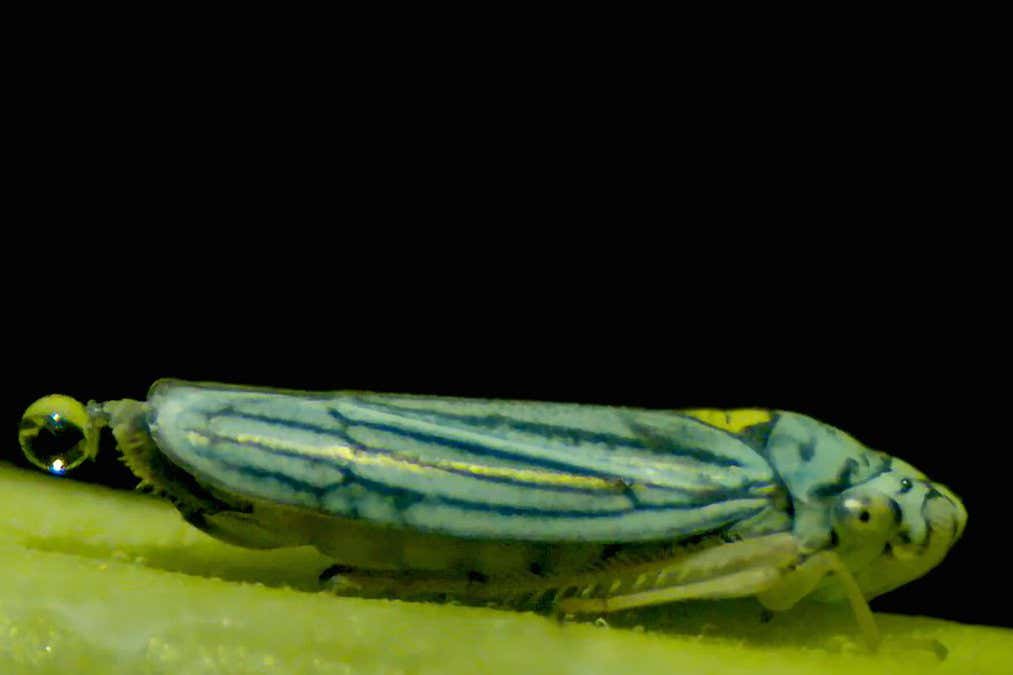Insect Urine: Tiny Creatures, Huge Waste – A Surprisingly Significant Ecological Impact
Insects, the often-overlooked denizens of our planet, silently contribute to a surprisingly significant ecological process: urination. While we might not think of ants or beetles relieving themselves in the same way mammals do, insect urine plays a crucial, often underestimated, role in nutrient cycling and ecosystem health. This article delves into the fascinating world of insect excretion, exploring its composition, ecological significance, and ongoing research in this often-overlooked field.
The Composition of Insect Urine: More Than Just Water
Unlike mammals with their concentrated urine, insect urine is typically a dilute solution. The primary component is water, of course, but it also contains a complex mixture of substances, including:
- Nitrogenous waste: Primarily uric acid, a less toxic compound compared to ammonia or urea, allowing insects to conserve water.
- Ions: Such as potassium, sodium, and chloride, essential for various metabolic processes.
- Organic compounds: Including amino acids, sugars, and other metabolites, contributing to the overall nutrient content.
- Hormones and pheromones: In some cases, insect urine can contain hormones or pheromones, potentially influencing the behavior of other insects or even plants.
The Ecological Role of Insect Urine: A Nutrient Cycle in Miniature
The seemingly insignificant amounts of urine produced by individual insects collectively contribute a substantial amount to nutrient cycling within ecosystems. This “tiny but mighty” effect manifests in several ways:
- Nutrient enrichment of soil: Insect urine deposits essential nutrients back into the soil, enriching it and promoting plant growth. This is particularly crucial in nutrient-poor environments.
- Food source for decomposers: The organic components of insect urine provide a food source for microorganisms like bacteria and fungi, further stimulating decomposition and nutrient cycling.
- Influence on plant-insect interactions: The presence of certain compounds in insect urine might affect plant growth or defense mechanisms, influencing the complex interactions between plants and herbivores.
- Impact on water quality: While usually insignificant at a local scale, insect urine in large aggregations, such as insect swarms or mass breeding sites, can contribute to changes in water chemistry.
Ongoing Research and Future Directions
While the study of insect urine might seem niche, it holds increasing importance in understanding ecosystem dynamics. Research currently focuses on several key areas:
- Quantifying the contribution of insect urine to nutrient cycling: More precise methods are being developed to measure the exact amount of nutrients deposited by insects through urination.
- Identifying specific compounds and their ecological effects: Researchers are working to identify the specific compounds in insect urine and how they affect the surrounding environment.
- The role of insect urine in climate change adaptation: How insect urine contributes to carbon sequestration and other climate-relevant processes is a rapidly growing area of research.
Conclusion: A Tiny Contribution, A Huge Impact
Insect urine, despite its minute volume per insect, collectively plays a vital role in maintaining healthy ecosystems. This often-overlooked aspect of insect biology highlights the interconnectedness of even the smallest creatures and the broader ecological processes they influence. Further research into this area will undoubtedly uncover more surprising insights into the intricate workings of our planet's diverse ecosystems. Understanding the role of insect urine helps us appreciate the intricate web of life and the crucial importance of even the smallest organisms in maintaining ecological balance. Let's continue to explore and uncover the hidden wonders of the insect world!
Keywords: Insect urine, insect waste, ecological impact, nutrient cycling, ecosystem health, uric acid, nitrogenous waste, soil enrichment, plant-insect interactions, environmental science, entomology.

